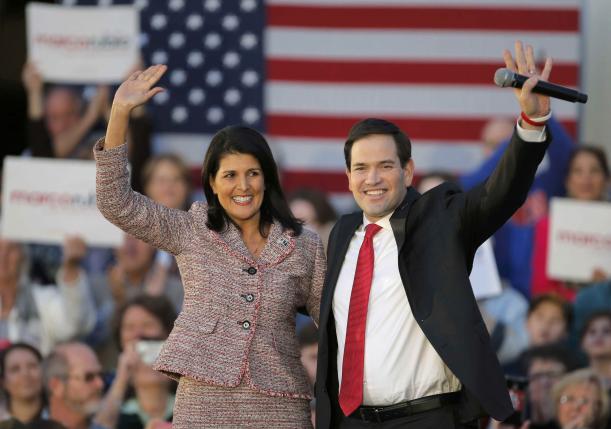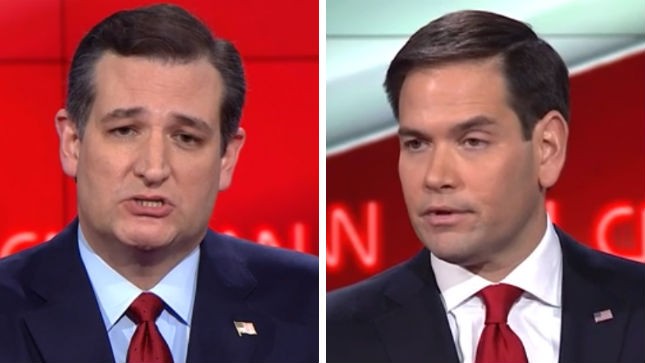Archive for February, 2016
Hieroglyphics
Posted by Joshua Sharf in General on February 20th, 2016
 A couple of nights ago, I was at a meeting, and a friend told me the most depressing story. I was chatting with one friend, and it turns out his father owned an aviation business here in Colorado, and helped start Centennial Airport.
A couple of nights ago, I was at a meeting, and a friend told me the most depressing story. I was chatting with one friend, and it turns out his father owned an aviation business here in Colorado, and helped start Centennial Airport.
My other friend, Bob, and his wife, are originally from Canada. Bob overheard the discussion, and offered up that Cheryl’s father was a flyer for the RAF during WWII, and they have his flight logs. They had sent them to his daughter, thinking she would find them interesting.
Turns out, she complained, she couldn’t read them. They were written in cursive, which is no longer taught.
Many of us fret about losing cursive as a writing skill, but it hadn’t occurred to me that by doing so, we’re also losing it as a reading skill.
Not teaching cursive, apparently, puts whole centuries of archival material outside the access of the current generation. Entire swaths of our history await scanning, where they will be ripped free from the moorings of their context, or they become the province of specialists. So much will become unintelligible, and personal histories like diaries or those flight logs will just end up in the trash.
That seems to me a great loss.
Haley Endorses Rubio
Posted by Joshua Sharf in 2016 Presidential Race, National Politics on February 17th, 2016
 South Carolina Gov. Nikki Haley formally endorsed Sen. Marco Rubio for President this evening at a campaign rally. As has been pointed out, without the political machines they once had at their disposal, elected officials’ endorsements mean less than they used to. Still, this is not insignificant, and comes just a few days before South Carolina holds its primary.
South Carolina Gov. Nikki Haley formally endorsed Sen. Marco Rubio for President this evening at a campaign rally. As has been pointed out, without the political machines they once had at their disposal, elected officials’ endorsements mean less than they used to. Still, this is not insignificant, and comes just a few days before South Carolina holds its primary.
Trump has been leading there and will probably win, but this gives Rubio the inside edge on the alleged “establishment lane” there, and could even push him past Cruz for 2nd place.
The endorsement isn’t entirely unexpected. Haley’s State of the Union response angered many of the Trump and Cruz persuasion, for its emphasis on talking about people rather than policies, and its perceived softness on immigration. Personally, I thought the response was inspiring. The tenor of it was very similar to Rubio’s at his most effective. After she delivered it, I figured that she would be supporting Rubio, if not endorsing him.
[youtube width=”425″ height=”318″]https://www.youtube.com/watch?v=GS5zR7_7M5c[/youtube]
Guy Benson had a Facebook post earlier suggesting that Haley’s endorsement, and that of Sen. Tim Scott, a black Republican from that state, would send an important message to up-and-coming conservatives in the party. I think that’s true, but I think it’s possible that Benson has the cause and effect reversed here.
Haley and Scott were already prominent non-White conservative Republicans. The message of their endorsement for Rubio is not that conservative ideas know no color or sex, that they apply to everyone. That’s the message of Haley and Scott being elected statewide officials in the birthplace of secession, that it’s all right for blacks and other minorities to identify as conservatives and as Republicans.
They could have endorsed anyone, with the exception of Trump, and that wouldn’t have changed.
They obviously have been sold on conservatism’s message and policies, and believe that those are sellable to other minorities and to women. I’m sure that a large factor in their endorsement of Rubio is their belief that of the remaining candidates, he is the most effective communicator of those ideas to those groups.
[youtube width=”425″ height=”318″]https://www.youtube.com/watch?v=MLCgeRN_FAE[/youtube]
Love in a Time of Politics
Posted by Joshua Sharf in Uncategorized on February 17th, 2016
Don’t fall in love with a candidate.
It’s ok to love his ideas, or how he presents them. It’s even ok to fall in love with policies, although those are – fortunately – rarely as pure as the ideas.
It’s even ok to decide, after a long, successful term of governance, that one has become attached, and to love an officer-holder for what they have done.
But don’t fall in love with candidates. That’s when they’re ambitious, egotistical, manipulative. They want to win an election, to hold an office. They may believe what they say, and you may like how they say it, but never forget that a candidate is, above all, trying to get something from you. Your vote. For office. For them.
If you love them, they probably don’t even know who you are.
Candidates are, like the rest of us, flawed human beings, with sins in their pasts and compromises to be made in their futures. They will have to trade away X to get Y and it may well be that X is the single most important thing to you in the platform. Nothing personal, just business.
That’s why, when you judge a candidate you do so based on cold calculation of whether or not supporting them advances the political cause. What will they do once in office? Do you trust their judgment, especially under pressure? Can they win? If they can’t win, does it matter, and what can they achieve in the course of losing?
But above all, not, do I love them?
As it is with candidate, whose business is politics, all the more so with a company or CEO, whose business is business, but who gets involved in politics.
Consider the news from Apple today that it will oppose an FBI request to develop a version of its iOS to allow the government to bypass security on confiscated phones.
Some libertarians are cheering Apple as a friend of liberty, a champion of freedom.
I strongly suspect that, to some extent their willingness to fall in love with Apple over this issue is strongly related to their having fallen in love with Steve Jobs’s products, but I can’t readily prove that. Nevertheless, fallen in love they have, at least for the moment.
Tim Cook is no Champion of Liberty. He’s a lefty with a libertarian streak when it comes to his company’s products. He supports gay marriage, which libertarians like, but opposes individual, private freedom of conscience not to participate in those ceremonies, which ought to give libertarians the willies.
He has committed Apple to get 100% of its power from highly expensive, heavily publicly-subsidized “renewable” energy, and refused to disclose to shareholders how much this will cost them.
Cook may or may not be on the right side of the privacy issue. (I tend to think he’s correct in general, but wildly wrong in thinking that two dead mass murderers have privacy rights worth respecting.) But on the whole, Cook is a typical New Oligarch, fond of using the government to tell other people how to live, while chafing at those restrictions himself.
In short, no friend of liberty.
Don’t fall in love with a company.
Rubio-Cruz, Cruz-Rubio
Posted by Joshua Sharf in 2016 Presidential Race on February 3rd, 2016
 After the Iowa Caucuses, it increasingly appears to be a three-man race, with two serious candidates, Senators Ted Cruz and Marco Rubio. The supporters of each are passionate, sometimes bordering on the maniac, but that’s how it’s ever been in American politics.
After the Iowa Caucuses, it increasingly appears to be a three-man race, with two serious candidates, Senators Ted Cruz and Marco Rubio. The supporters of each are passionate, sometimes bordering on the maniac, but that’s how it’s ever been in American politics.
Sadly, Obama is living up to his promises of fundamental transformation, increasing both the role of the federal government in our day-to-day lives, making it harder for people to rise, making us more dependent on government programs, and hobbling us economically and overseas. He has corrupted everything he has touched, from the IRS to the Justice Department to Defense to the intelligence agencies. He has normalized the idea that it’s all right for the President of the United States to wield the power of the federal government against his political opponents. He will leave the next president with dangerously little room to maneuver – politically fiscally, militarily, and diplomatically – but maneuver he must.
Therefore, I’m less concerned with the antics of their supporters, and more concerned with how each would govern and would affect the long-term prospects for conservatism and the Republican party as its vehicle.
Both Cruz and Rubio present risks in terms of how they would govern, but each presents a different payoff, as well.
Rubio’s benefit is obvious: he’s plenty conservative, and his joyful optimism is better-positioned to bring both the party and the country back to civility, grow the conservative movement among urbanites, minorities, and women, and give us some base for a growing demographic majority rather than a shrinking one. He’s also more likely to hold onto those Congressional majorities, and keep the Democrats at bay at the state level for a while.
That last is more important than it seems. The prospects for a Republican who can win blue states like Minnesota can’t be overstated. As opposed to 1980, or even 1992, far fewer states have been in play at the Presidential level, over the last five elections. Pending the state-level results in 2020, and redistricting, the country risks hardening into relatively evenly-balanced partisan geographic blocks, something we haven’t seen since the mid-1800s.
Worse, while the Republicans have been sweeping everything in their path at the Congressional and state levels, the Democrats have enjoyed an enormous, although not always insurmountable, advantage in the Electoral College. This matters, because at the same time, they’ve been doing everything possible to unbalance our political processes so that winning the presidency is all that matters. A Republican president needs to undo the latter trend, but the results will only have staying power if he can also undo the electoral trend, as well.
The question is how much a President Rubio willing to do with that majority. He’s less likely to upset the apple cart of the established order, fundamentally rethink foreign policy, or take extraordinarily bold action early on. So is the potential reward going to come in time to save the Republic? That’s the risk that we think we’re getting with Rubio – a temperamentally conservative figure who will be more inclined to color inside the lines, turn the ship 15 degrees to starboard when it needs to go full reverse, and who will leave Washington basically unchanged in how it does business.
Cruz’s questions are different. He’s a higher-reward proposition. He’s much more likely to take bold, decisive conservative action, and much more likely to tell the “establishment,” whatever that means now, to pound sand, and thereby reorder how Washington works, if such is possible. David Goldman (Spengler) makes a compelling case that he’s the only one with the intellectual chops to rethink foreign policy in a constructive, strategic way.
However, if he’s higher-reward, he’s also much higher-risk. He will win by winning Romney’s states, plus Virginia, Florida, Ohio and then one other state – Nevada? New Mexico? Iowa? New Hampshire? Which means he won’t be coming in on a landslide of goodwill. Rather he’d win narrowly, and probably divisively. I’ve mentioned before how it’s hard to govern when everyone hates you, and as an additional handicap, he won’t have the press on his side, and he won’t have a particularly large reservoir of goodwill. When things start to go wrong – and things always go wrong – he won’t have very many friends to help him out without exacting a steep price.
Which leads to the internal contradiction of a Cruz Presidency. He’s a man committed to restoring the Constitutional order, which means governing through Congress and rolling back federal power. But he’s also a man who may find it impossible to make any of the domestic changes necessary, since that long-term change requires Congressional legislation. It means that a President Cruz, who longs to restore the Constitutional balance, may be stuck having to rely on the power of the executive, which both betrays that plan, and makes any structural fiscal or regulatory reform short-lived.
That’s the calculus facing Republican voters. It goes without saying that either Rubio or Cruz is a better bet for the country than corrupt Clinton or socialist Sanders. Imagine after eight years of either, after eight years of Obama, with a presidency increasingly comfortable with truly imperial powers. By then, it would be almost impossible to remember a time when the president couldn’t simply do whatever he or she wanted, or worse, when a citizen largely could do whatever he or she wanted.



